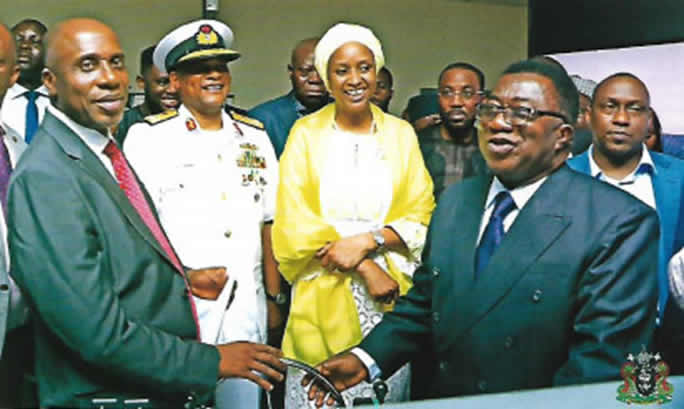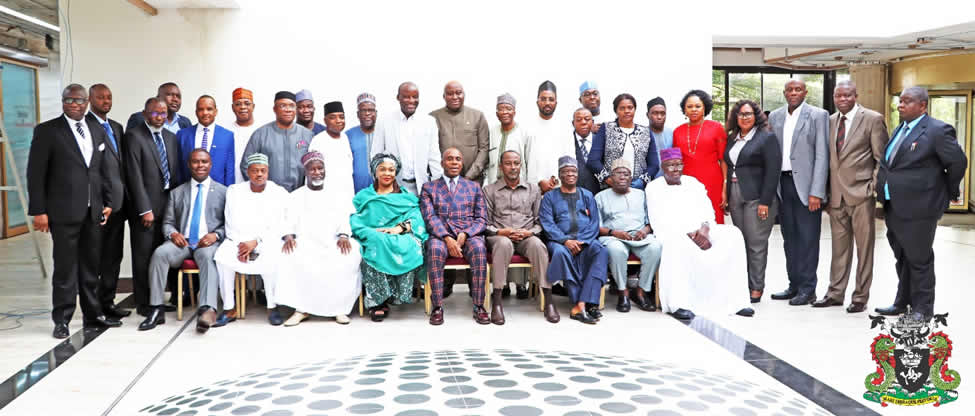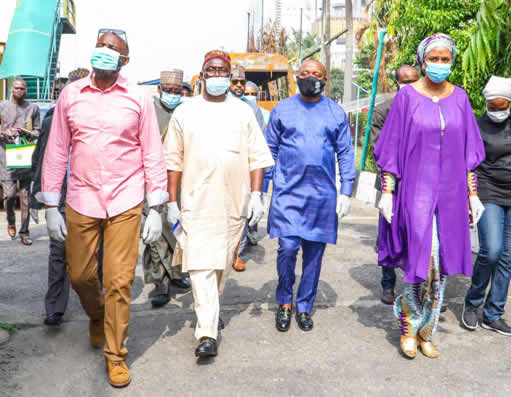
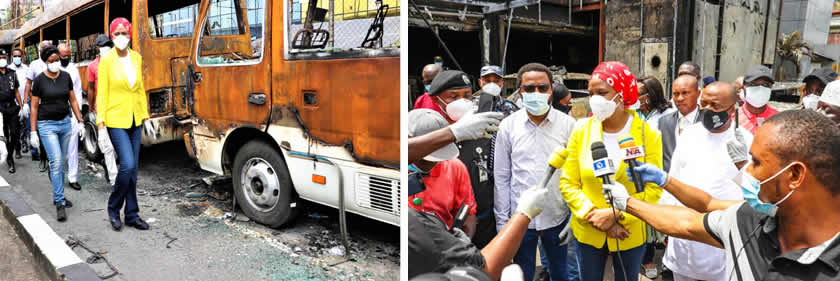
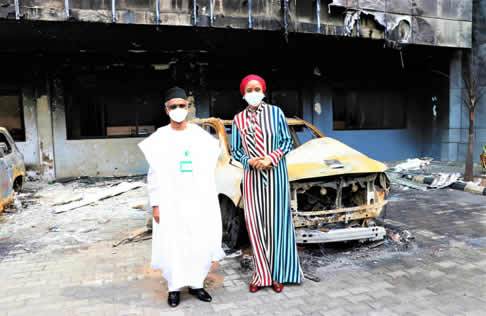
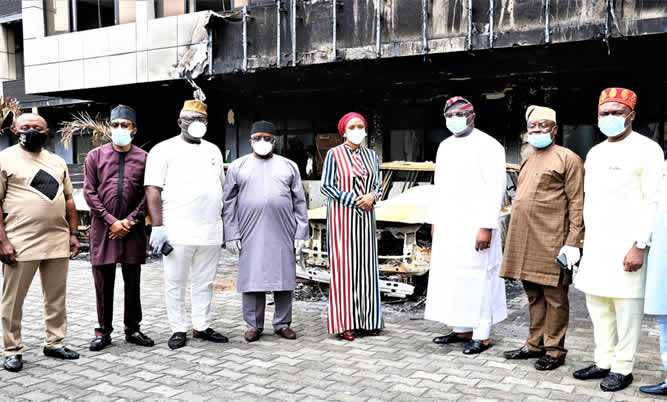
A Joint Statement by the NIMASA-Industry Working Group
Nigerian Government and Industry Joint Working Group (NIWG) Statement on Maritime Security Collaboration
The Joint Working Group (JWG) comprising the Nigerian Maritime Administration and Safety Agency (NIMASA), the Ministry of Transport, Nigerian Navy, Nigeria Ports Authority, Marine Police Interpol, the oil industry (represented by OCIMF) and shipping industry (represented by ICS, BIMCO, INTERCARGO, INTERTANKO and the Nigerian Shipowners’ Association) was established in May 2020 in order to facilitate coordination between government and industry and align efforts to deter and respond to incidents of piracy and armed robbery in Nigerian territorial waters and EEZ. The NIMASA/Industry Working Group (NIWG) is the first coordinated effort between industry and the Nigerian Government (represented by NIMASA, Ministry of Transport, Nigerian Navy, Interpol, Marine Police, Customs and Nigerian Ports Authority) to address the issues of maritime security.
The objective of the working group is to accelerate efforts to tackle maritime security threats by facilitating interaction between the stakeholders, pursuing projects through mutual collaboration, and enhancing transparency between government and industry in addressing the shared goal of achieving the permanent prevention of piracy and armed robbery in the region. By extension, ensuring the safety of seafarers and shipping operations in the region will enable Nigeria and other coastal states in the Eastern Gulf of Guinea to realise the full potential of their Blue Economies.
Progress update from the NIWG:
Since the NIWG was established, considerable progress has been made to deepen collaboration between agencies and navies, build operational response capabilities, develop more robust reporting frameworks and share best practice between Government and industry. It is the view of the NIWG the progress made to date demonstrates enthusiasm on both sides to tackle the problem despite considerable challenges posed by the pandemic. Now that the foundations for more collaborative working are in place, there is considerable momentum behind the NIWG’s efforts to reduce maritime security incidents in the region.
At a regulatory level, NIMASA is now working directly with the International Maritime Organization (IMO) in developing a National Maritime Security Strategy, Nigeria has formally endorsed industry’s Best Management Practices West Africa (BMP WA) guidance and, following the entry into force of, Nigeria’s Suppression of Piracy and Other Maritime Offences Act, 2019 (SPOMO Act), prosecutions are underway.
The NIWG industry partners have been working with NIMASA to finalise a new Nigerian National Maritime Reporting Framework which will support merchant vessels in distress, and NIMASA’s Command, Control, Computer Communication and Information (C4i) Centre has been identified as a national focal point for coordinating the multi-agency response. These developments are a significant step forward in improving Nigeria’s response capabilities and potentially enhancing security for vessels operating in Nigerian Waters. The NIWG recognises the role of the Maritime Domain Awareness for Trade -GoG (MDAT-GOG) as the single point of communication for merchant ships and is pleased to inform that cooperation between the IMB, MDAT-GoG and NIMASA’s C4I Centre is progressing well.
There has also been a welcome escalation in the Nigerian Navy’s maritime security response activities. Conduct of two military exercises (Operation Calm Water and Operation Sanga Sung) by NIMASA and the Nigerian Navy in recent months have been successful in testing and demonstrating response capabilities. Importantly, considerable progress has also been made to advance The Integrated National Security and Waterways Protection Infrastructure project, otherwise known as the Deep Blue Project (DBP), which aims to comprehensively address insecurity and criminality in Nigeria’s territorial waters and exclusive economic zone. While COVID-19 has caused disruptions to this landmark project, delayed training required to deploy DBP assets Q4 2020/Q1 2021 has recommenced. It is agreed by the NIWG that progressing the DBP is a key priority, which will require continued support by industry and sustained resource from the Nigerian government.
While this positive progress speaks to the benefits of leveraging the collective strength and capabilities of both Government and industry in striving toward a shared goal, the reality is that the risk of maritime security incidents in Nigerian waters remains high and is likely to increase in the coming months now that the monsoon season has ended.
The NIWG recognises that there is a considerable way to go, and therefore it is essential that momentum is maintained in implementing maritime security programmes and initiatives to effect real and lasting change and secure the waters blighted by maritime crime.
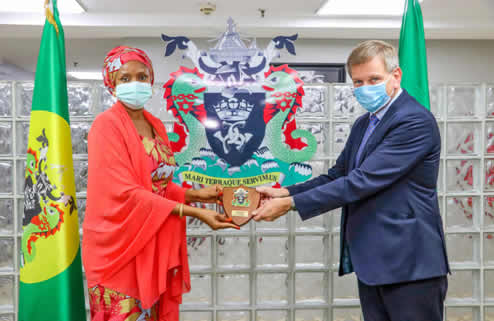
NPA Port Training Institute Commissions Marine and Harbour Simulation Centre (June 2019)
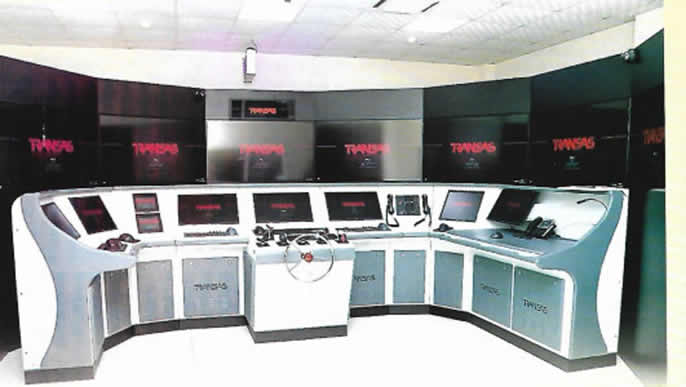
The Nigerian Ports Authority (NPA) Port Training Institute at Apapa Dockyard has commissioned a marine and harbor simulation centre for the training of NPA operations staff.
In an address on the occasion, NPA Managing Director, Hadiza Bala Usman, said “the facility would boost the capacity of our operations personnel, the pilots, marine officers, tug masters, radio signal operators” to render better services on duty, according to a report in Nigerian Ports Today.
She hoped that the centre would facilitate the berthing of bigger ships.
The former Minister for Transportation, Chibuike Amaechi, who graced the occasion praised NPA’s management for setting up the centre which would cut down on the expenses spent on human capacity development overseas.
The courses now offered at the centre used to be taught NPA staff in the UK.
The Minister said the Centre “would save the Federal Government foreign exchange that would have been used in training personnel abroad just like it is a testament that government is desirous of encouraging local content in order to grow the economy”.
DDH gathered that the simulator is capable of multiple functionalities including the capacity to pre-gauge the feasibility of fitting various sizes of vessels in available berths and other operational modelling which shipping lines may want to investigate before the actual operation.
Other commercial initiatives being explored for the facility include offshore supply vessel simulation, engine room simulation, liquid cargo handling simulation, mandatory and non-mandatory training in line with STCW’95, dynamic positioning courses, helicopter underwater escape training, basic offshore induction and emergency training, minimum industry safety training standards (MIST) and Manila Refresher Courses in fast rescue boat, oil tanker familiarization, advanced fire-fighting, advanced medicals, security awareness for ratings.
